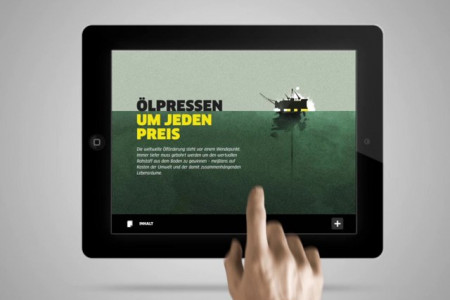
Put Down the Plastic: How to Move Away From Plastic Dependency
PUT DOWN THE PLASTIC How to Move Away from Plastic Dependency 32 MILLION tons of plastic waste were generated in 2012 • That's 12.7 percent of the total municipal solid waste The U.S. generated nearly 14 million tons of plastics as containers and packaging 11 million tons as durable goods (such as appliances) 7 million tons as nondurable goods (such as plates and cups) Only 9 percent of all the plastic waste generated in 2012 was recovered for recycling. Plastic Generation and Recovery 32- 28 24 20 16 Plastic Generation 12- - Plastic Recovery 8- 4- 1960 1965 1970 1975 1980 1985 1990 1995 2000 2005 While recycling efforts have increased over the last three decades, the gap between plastics recovery and generation continues to widen. Plastic Problems: Effects on the Environment ..... 100,000 marine creatures An estimated 46,000 pieces of plastic occupy each square die from plastic entanglement each year. mile of ocean. At least More than 250 species 2/3 of the world's fish stocks are suffering from plastic ingestion. are known to have eaten or become tangled in plastic. Here's the Breakdown: How Long It takes for Plastic to Biodegrade Years 1,000,000 100,000 10,000 1,000 100 10 Plastic 6-pack holder rings Plastic bottles Plastic coated paper milk cartons Reduce Plastic Pollution: Easy Ways to Cut Back Consider alternative materials to gradually reduce plastic use. Aluminum Steel Glass Wood Easier to reuse and Metals, and glass are durable and can be recycled indefinitely. dispose of than plastic. Bagasse Bioplastics • An eco-friendlier version of plastic. • The pulp leftover when juice is extracted from sugarcane or beets. • Made from sources such as vegetable fats and oils or cornstarch instead of fossil fuels. • Compostable and eco-friendly. • Biodegradeable. • Used for disposable plates, cups, or take-out containers. • Look for PLA or CPLA: both will biodegrade. At Home Use a water filter Make your own cleaning products and store them in instead of purchasing bottled water. glass bottles. 76.5% of these bottles ended up in landfills. Use reusable plates, Purchase wooden cups, and silverware. toys. Save glass jars and Use cloth shower use them instead of curtains. plastic food storage containers. Compost to use fewer garbage bags. Buy metal or wood furniture instead of plastic deck furniture. Consider cloth diapering. An estimated 7.6 billion pounds of disposable diapers are discarded in the U.S. each year. More than 300 pounds of wood, 50 pounds of petroleum feedstock, and 20 pounds of chlorine are used to produce disposable diapers for one baby. for one year. PELEU At the Grocery Store Bring cloth bags A single plastic bag can take 1.000 years to degrade. Shoppers worldwide use roughly 500 billion single-use plastic. That's around1 million bags every minute Recycling one ton OR 150 bags a year for every person on earth. of plastic bags costs $4.000. Л 13.3% of plastic packaging was recycled in 2008. At the Office Use a reusable mug Bring your own washable Pack lunch in for coffee or tea. reusable containers dishware and utensils. Bring it to coffee shops and bags. as well. The average office worker uses about 500 plastic disposable cups each year. Since plastic was created more than a century ago, we've become dependent on it for its convenience, innovation, and function. But despite its many applications, plastic is polluting our land and waterways. Even small, simple changes can make a big difference. epa.gov • surfrider.org • oceancrusaders.org • caretacticsblog.com • onegreenplanet.org bigfatbags.com.uk greenhome.com cleanair.org smallfootprintfamily.com realdiaperassociation.org greeneducationfoundation.org onegoodthingbyjillee.com Brought to you by: In Partnership with: CUSTOM E| MADE GHERGICH&Co. ****. **** million tons
Put Down the Plastic: How to Move Away From Plastic Dependency
Source
http://www.c...e-plastic/Category
EnvironmentGet a Quote







